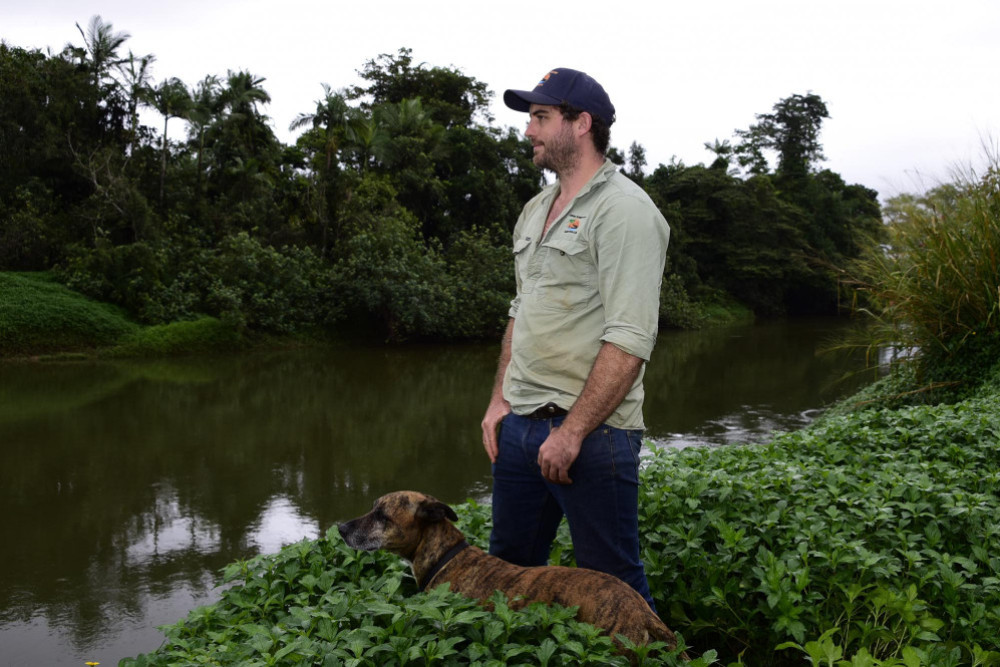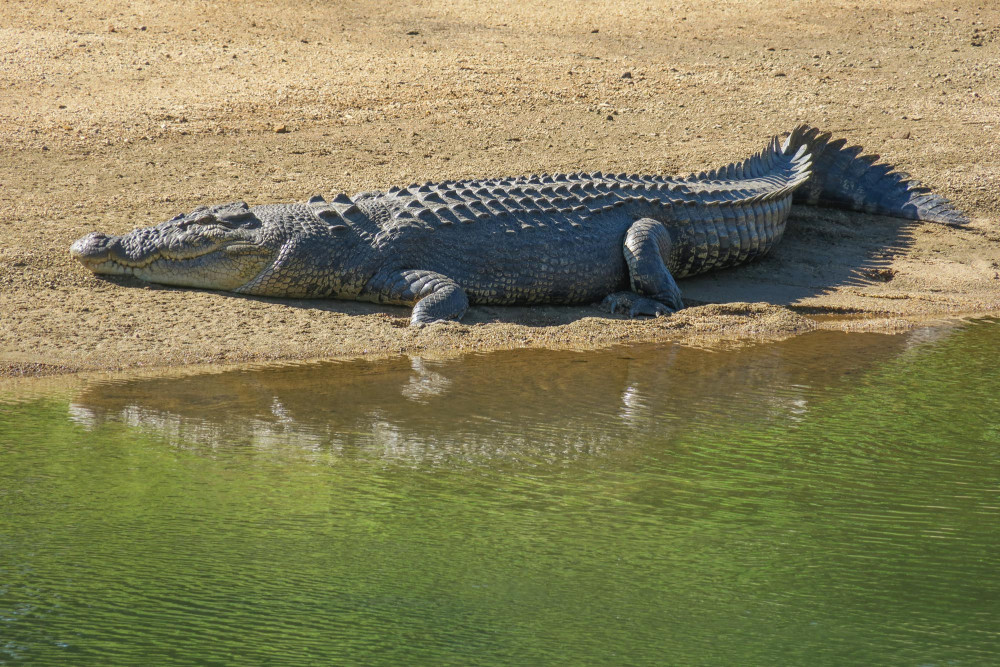General News
18 July, 2022
Don’t feed Clyde the croc, experts advise
FEEDING crocodiles without permission is illegal and can attract a large fine.

Recent speculation and media reports about the status of a large saltwater crocodile at East Russell have prompted the Department of Environment and Science and a local crocodile expert to remind the public not to feed the animal.
The crocodile, estimated to be around 3.8 to 4 metres, was named ‘Clyde’ last year after the road bridge near where it is regularly seen sunning itself on a sandbar in the Russell River.
But recent media reports prompted a rush of croc-spotters to the area, and local experts believe there have been several instances of the croc being fed illegally.
“The regular feeding of crocs can affect their behaviour and encourage the animals to hang around the area, waiting for their next meal,” a DES spokesperson said.
“This can place future visitors to the area at an increased risk.”
Speculation over whether the large crocodile at the Russell River bridge is Clyde, or whether another large male has “moved in” and taken over Clyde’s territory, has been put to rest by local resident and crocodile expert Jesse Crampton, who has worked with the animals all over northern Australia. Jesse said it is without a doubt the same croc.
“In the wet season, they get accelerated growth rates and are eating more in that warmer weather, and this guy’s certainly bulked up, put a few kilos on, that’s for sure,” he said.
Clyde is in what experts call a “site-idyllic location” - a few females around, a basking bank and a reliable food source. But it is the way Clyde gets his food that is potentially a major problem.

“It all sounds good but if people are feeding him it is certainly a negative thing for this crocodile. When they get food associated, they lose the fear of people and once they lose the fear of people, they become very dangerous,” Jesse said.
Besides the clear dangers, another downside of illegal feeding is losing the in-the-wild attraction altogether.
“Clyde being fed by people is certainly a one-way ticket to being removed from the wild.”
“Even though we (Australia) have got the highest density of saltwater crocs in the world, attacks on people are extremely rare. Maybe one fatality every two or three years, and if you look at the statistics it’s usually people doing dumb stuff.
“Come have a look at them but be respectful. If you are caught feeding them, there are severe penalties.”
The maximum penalty for deliberately feeding crocodiles is $5222, and anyone with information about the deliberate feeding of crocodiles is encouraged to report it to the DES, by calling 1300 130 372.


